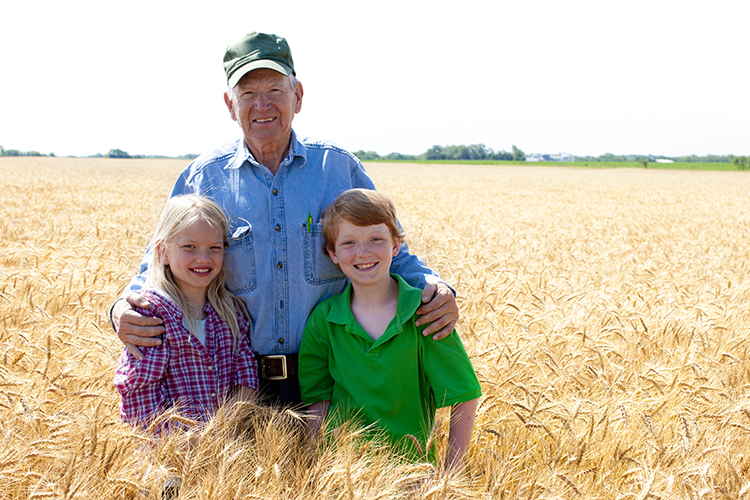
In a farm business, planning for an owner’s later years is an important aspect of a farm succession plan. Even if the owners are not planning on fully retiring as many people outside of agricultural circles do, it is important for the owner generation to consider what this period of life will look like.
Farm businesses have unique characteristics that may not be addressed in general financial or retirement planning. Farmers may depend less on Social Security for retirement income than a typical U.S. household, but this may be because farmers manage income taxes in a way that allows paying less into the Social Security system than a typical U.S. household.
In some cases, farmers’ retirement assets include traditional retirement products like individual retirement accounts (IRAs) or employer-sponsored plans. However, research shows that the bulk of a farm household’s wealth is in the business assets. If those business assets are expected to be used by the next generation, it makes planning for those later years even more important because multiple generations’ livelihoods depend on it.
Retiring farmers must answer the questions of where to live, what to do, and how to fund it against the backdrop of the farm business continuing for the entering generation. A recently updated resource from Clemson University called “Using Farm Assets for Retirement” can help farmers evaluate the options of leasing, selling, or transferring by gift or inheritance and how each impacts the owner generation’s retirement plans.
The next generation is ready
However, too many farmers allow their unwillingness to recognize, analyze, and discuss the emotional aspects of retirement and succession to stall their planning. Farm operations considered financially sound, well-managed businesses can slowly collapse and fail because the older generation is reluctant to face the contradicting desires of seeing the next generation succeed and retaining the independence and self-identity farming provides.
Recent research from Ireland indicates this reluctance of farmers to alter the status-quo is not just an American phenomenon. Recognizing the long-term goals in terms of management and asset transfer, retirement decisions, and income needs — and analyzing where these goals intersect and contradict — can provide a platform for consensus among the farming partners.
Portions of this article are from a previous article by this author.
Read more here.








